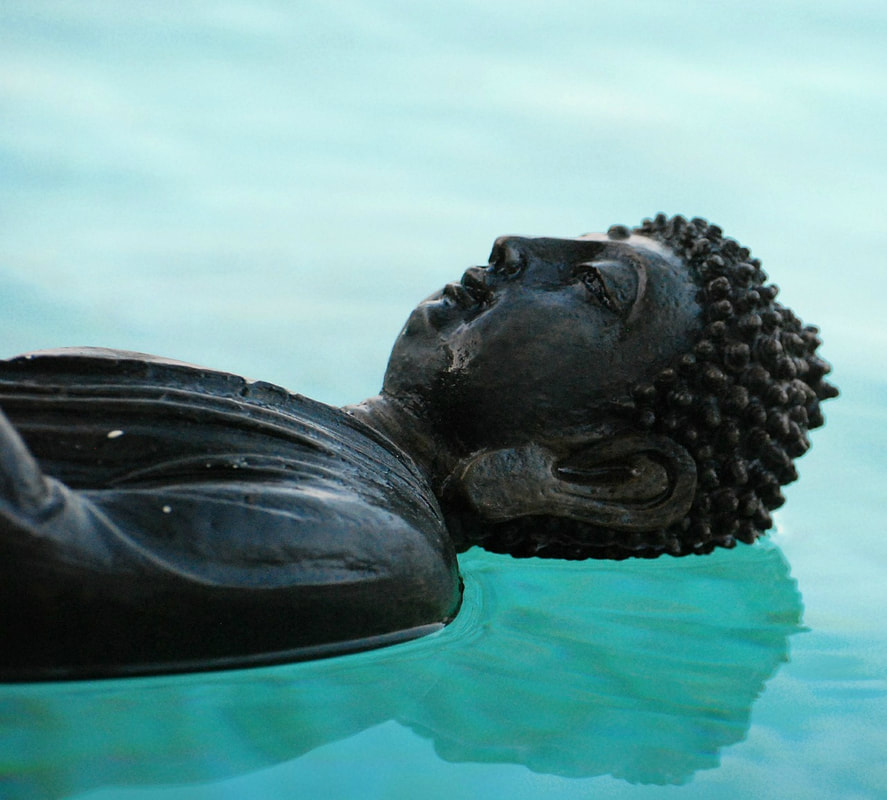|
"Since the dawn of time, our bodies
have been at war with foreign bacteria and viruses. Since the dawn of knowingness, our minds have been at war with uneasy questions. Since the dawn of wants, we've been at war with ignorance, which has not had the time or knowingness to realize that we have finally ended up at war only with ourselves - called death So I ask you what is it that you always wanted to hold in the palm of your hand since your birth? Wood? Metal? or Another Hand ?" by Emahó I stumbled across these words on the internet written by Emaho, an American Indian from New Mexico who delivers seminars across Europe. Interestingly enough, to me, I had been "coincidentally" mesmerized earlier by my new deck of Native American medicine cards as well as working on a theme based on the Tibetan word "emaho". The poem says "since the dawn of knowingness, our minds have been at war with uneasy questions"... Why is that? The dawn of knowingness implies we had all the answers at that time; why do we allow the mind to intervene with what we know? Bodhisattvas have a knowingness about them that solves problems from the heart. Not only do they recognize the solution through wisdom, they intuitively understand how to impose actions that will carry out the solution. This is where we often get stuck. We might be able to see the solution we or someone else needs, but we do not know how to get from point A to B. So we sit with our questions. If I do this, what will happen? If I talk to this person, will things be better or worse? So we stay in a state of inaction. "The most sacred prayer is not coming from a book, it's not coming from somebody else's mouth, it's coming from your own heart." Emahó I love this story taken from Lama Surya Das' book, "Budha is As Buddha Does": A kindergarten teacher hands out paper and crayons and asks the kids to draw whatever they would like. She approaches one little girl and asks her what it is she is drawing. The girl says, God. The teacher replies but no one knows what God looks like. And the girl responds, they will in a minute. The teacher is stuck in her not knowing; she most likely would not have attempted to draw God because her mind would be stopped in questioning mode. What color should she use? Male or female? and on and on. The girl, like a bodhisattva, listened intuitively to her heart and just illustrated what she knew. Emahó teaches how "to see life through 'Life's Eyes' rather than through the eyes of the personality... Most of us operate from hurt and disappointment, though we might not know it. To reach the ability to see through 'Life's Eyes', Emahó suggests you seek simply because you have realized the goodness of life, not because you are desperate, lonely or hungry, the point at which most of us start searching. Rather than being spiritual it is to be a spirited human being in nature - to begin to wake up in your life and fight to be more alive in it." http://www.emaho.ws/page3.html The word emaho, inTibetan, means beautiful, fantastic, wondrous. It is used at the beginning and end of Tibetan poetry, much like Om is chanted at the beginning and end of sanskrit mantras. How would Emaho bookend your day?
0 Comments
Leave a Reply. |
Archives
March 2024
|

 RSS Feed
RSS Feed